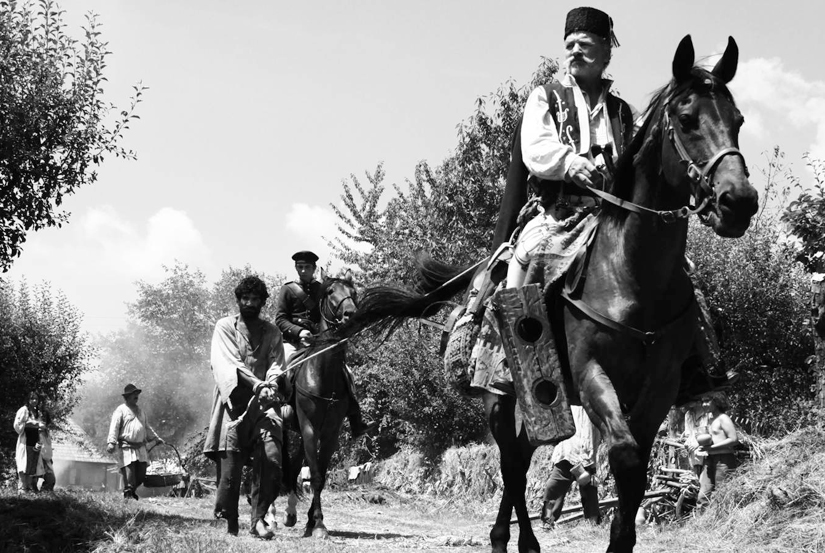
- Film
Foreign Film Submissions, 2015: Aferim! (Romania)
Part of the Hollywood Foreign Press Association’s mission is to foster greater understanding through world cinema. This year 72 Foreign Language films were submitted for Golden Globes consideration. Here is an overview of one of them.
Aferim! is directed by acclaimed Romanian filmmaker, Radu Jude. Jude worked as an assistant director for Amen and The Death of Mr. Lazarescu. He directed several award-winning short films, including The Tube with a Hat – the most successful Romanian short film ever and the winner of the Grand prize at Sundance. Jude directed over 100 advertising commercials. The Happiest Girl in the World, his feature film debut, won the CICAE Prize at the Berlin International Film Festival. So to no one's surprise, Aferim! won the Silver Bear Best Director at the 2015 Berlin International Film Festival. .
Aferim! is a contemporary Romanian film that addresses the issues of Gypsy slavery and the long history of anti-Roma prejudice in Romania. Gypsy slavery lasted from the 14th century up until the middle of the 19th century – an almost unknown fact that made a huge impact and continues to influence Romania's social life.
The story is set in Eastern Europe in 1835. Two riders cross a barren landscape in the middle of Wallachia. They are the gendarme Costandin and his son – Ionita. Together they are searching for a gypsy slave who has run away from his nobleman master and is suspected of having an affair with the noble's wife. While the unflappable Costandin comments on every situation with a cheery aphorism, his son takes a more contemplative view of the world. On their odyssey they encounter people of different nationalities and beliefs: Turks and Russians, Christians and Jews, Romanians and Hungarians. Each harbors prejudices against the others, which have been passed down from generation to generation. And even when the slave Carfin is found, the adventure is far from over.
Jude’s third feature has been aptly compared to films as diverse as The Searchers, The Last Detail and Pulp Fiction for its rambling, coarse and endlessly entertaining dialogues. The film, however, is ultimately a moving parable about late-feudal Europe developed from historical documents and songs: its power structures and hierarchies, people's ideas of themselves and others, interaction with minorities and the resulting conflicts. It is a Balkan Western in black-and-white that brings the cacophony of the times strikingly to life and explores the thematic arcs that stretch into the present.
Nelle Holmes